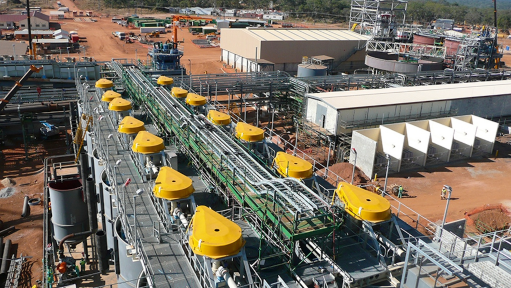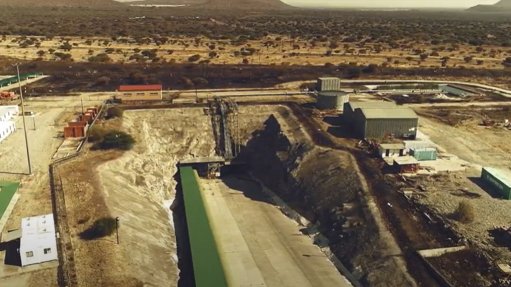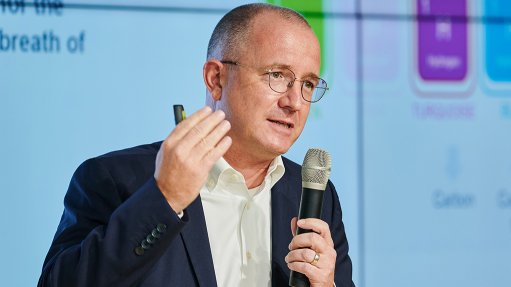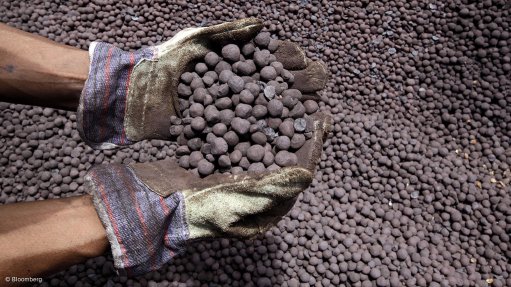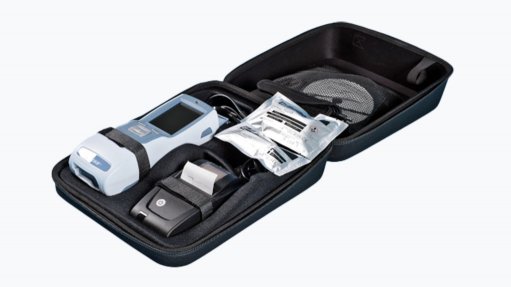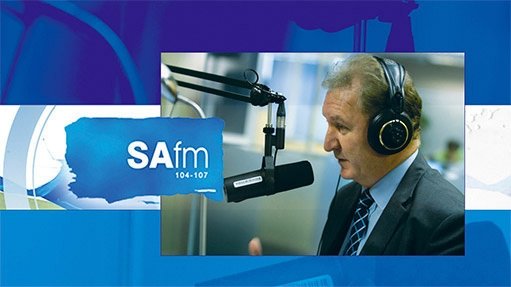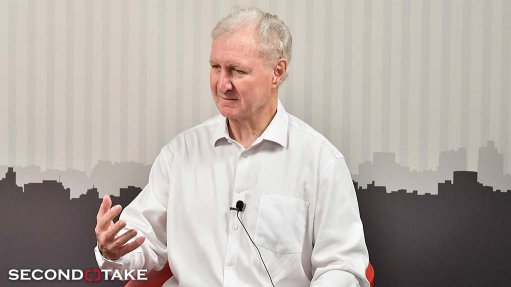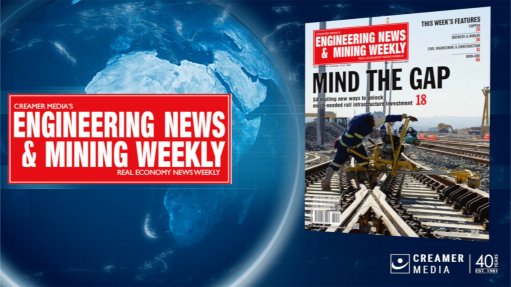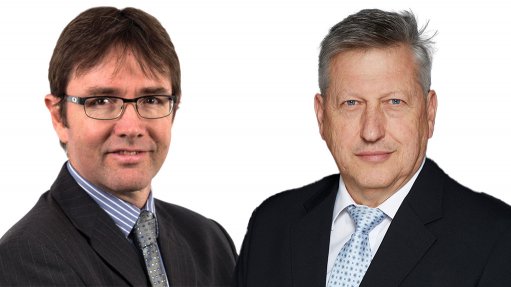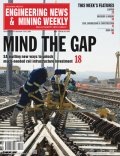Mechanical cutting is going to be key for mining going forward – Master Drilling

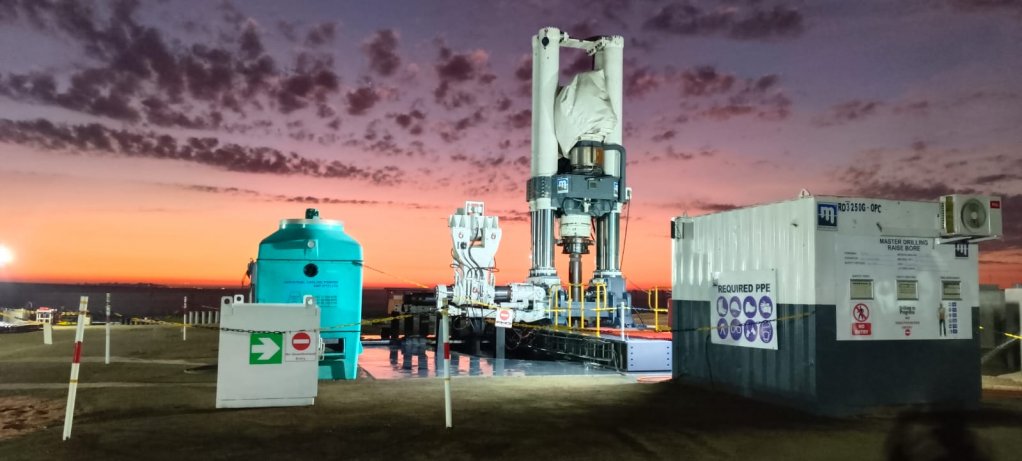
Master Drilling CEO Danie Pretorius interviewed by Mining Weekly's Martin Creamer. Video: Darlene Creamer.
Master Drilling raise boring.
JOHANNESBURG (miningweekly.com) – Mechanical cutting, in which huge progress is being made, is going to be key for the mining industry going forward, Master Drilling CEO Danie Pretorius emphasised on Tuesday, when his Johannesburg Stock Exchange-listed company presented a dividend-yielding set of 2023 full-year results that included the best ever safety performance and the biggest ever order book.
“The industry can benefit big time from what we've already achieved in the field of mechanical cutting,” Pretorius highlighted in a Zoom interview with Mining Weekly while reporting record-high revenue of $242.8-million and an order book that topped the $288-million mark. (Also watch attached Creamer Media video.)
This rock-boring and exploration drilling company based in Fochville, on Gauteng’s West Rand, serves the Democratic Republic of Congo (DRC), Zambia, Mali, Ghana, Sierra Leone, Brazil, Chile, Colombia, Mexico and Peru, and has a presence in the US, Canada, Australia, India, Turkey, China, Russia and France.
Providing more insight into mechanical cutting and why it is going to be so meaningful, Pretorius said: “In short, the emphasis is going to be on mechanical cutting helping miners to get down to depth in a much shorter space of time.”
On whether mining companies see it in the same light, he added: “Speaking to the miners, we all agree that if you look globally today, all the easy reserves are long gone, and so we need to focus on how we can successfully mine the deeper reserves . Also, grade is not getting better and the logistics in the areas to be mined are not that easy.”
Against that background, Master Drilling is advanced in developing mechanical cutting systems to get to those deeper levels quickly.
The emphasis is on speed. Long gone are the days when an investor will wait ten to 15 years for some dividends or some cash flows from a project.
"We need to squeeze down on the timing,” Pretorius accentuated.
Hence the reason why Master Drilling has invested so much time and money in its mechanical shaft boring system (SBS) prototype being commissioned; its MTB mobile tunnel borer, which has already been tried at Mogalakwena platinum mine in Limpopo; its blade project, which is being sponsored by De Beers and Anglo; and its reef cutting system, which is being commissioned at its headquarters in Fochville.
Mining Weekly: Do you envisage mechanical cutting going beyond mine development and also being used by mineworkers for mining without blasting?
Pretorius: Ideally, in a perfect world, yes. Maybe not in my lifetime, but maybe in 10 to 20 years from today. You can mechanically bore a shaft to one to two kilometres down, do the horizontal development with some sort of mechanical cutting means, and then go into the stopes with the reef cutting system, which we are developing. At that point, you’ll probably have most of the tools in a box to mechanically mine a mine in future.
What will then become of the traditional explosives route?
I think that blasting is going to be phased out for a number of reasons, which include safety, re-entry time, and damage done to the rock environment, the geology. Will it be the next 10 years? Probably not, but there are many companies developing systems and ways to mechanically cut rock, and to move away from the use of explosives.
THE RAISE BORING OF A LARGE SHAFT
During results presentations, mining company Northam Platinum has commented on the work Master Drilling is undertaking for it, which involves the raise boring of a large shaft.
This is reportedly being done far more quickly than conventionally and also at considerably lower capital cost.
Could there be benefit in this for other mining companies?
The comparison for Northam at the time was to sink a 10 m to 12 m wide shaft to a depth of 1.5 km in far quicker time than the probable conventional eight to ten years.
The conventional route was also far more capital-intensive than for the three or four raise bore holes, with upside from the first raise bore hole probable within three years.
"Moreover, you have the luxury of levers that can be pulled if the market turns on you, like what we saw last year. You can postpone some of these raise bore holes while still having the upside of the holes that have already been drilled.
“The benefit the industry will take from what Northam, at the time, agreed with us, in terms of risk, is you can actually drill over 1.5 km, a hole straight by definition, where you can actually equip the shaft, which is unusual.
“Ten years ago, nobody wanted to risk that. The management of Northam decided to take the risk and we decided to partake, at the time, in this risk, and it turned out to be successful, so I really think the industry can benefit big time from what we've achieved and what Northam achieved, with the raise bore holes down to 1.5 km," he said.
Which is bigger, demand for your rock bore services or for your exploration drilling?
The exploration business, in our world, is minute. It's probably 5%, 6% to 7% of the total business and exploration in our group has only been done in South Africa . . . but we’re currently rolling it out in Saudi, Angola and north of Limpopo. In the next five years, we’ll probably see more exploration work being done in the world, outside the boundaries of South Africa. That's part of the strategy.
From what part of the world do you get most of your business?
Africa’s been very good. We've been doing business in Africa for about 40 years, and we've got a very good relationship with the miners up in Africa, and we see Africa, Europe, maybe India, which has been coming through in the last couple of years, being key for the future of this business. A lot of miners are currently entering Africa, which was unusual five to 10 years ago. All of a sudden, we see some of these larger mining houses moving into the DRC, which was a no-go area for them. I really think there’s going to be more of the leading first-tier mining companies moving into Africa and in time to come, and in the medium term most certainly, there’s going to be a lot of business for our type of company in Africa.
What are the prospects for more drilling orders in South Africa and is it probable that South Africa’s promised new cadastre system will place more demand on your services within South Africa?
That's the million-dollar question. We've always said if you look at the South African mining industry, and you just take a step back, if you look at the gold miners, the one that's still in business and doing okay is Harmony. If you look at the PGMs, I think the two that probably top the list are Anglo Platinum and Northam. Then you've got diamond miner De Beers and the iron-ore and manganese in the Northern Cape, but that's pretty much mining in South Africa. We’ve got some loyal clients, and we’ll obviously be supportive to those clients, but in terms of growth in South Africa, I hate to say it out loud, but I don't think there's much growth going to come in our business from South Africa.
What influence is ESG having on the energy that you use to drill?
When it comes to raise boring, which is probably 70% to 80% of the business today, we've been supplied power from the mines, so we just step into the power source. That being said, the miners, as part of their ESG plans, insist that we actually measure our carbon dioxide per kilogram per meter drilled, almost as an output, so where we are today is just to measure what we're consuming, and then agree on initiatives to probably deal with the reduction thereof in time to come.
ROBOTIC DRILLING MACHINE
Master Drilling reported that its development of a robotic surface drilling machine was completed late in 2023 with operational testing under way and operational work to begin next month. Production with a newly developed robotic underground machine began in late 2023.
Regarding safety, the lost time injury frequency rate for 2023 has been 0.5.
On the financial front, cash generated from operating activities rose 42% to $35.5-million and the 2023 dividend of 52.5 South African cents a share is an increase on the 47.5 cents a share in 2022.
Master Drilling was established in 1986 and listed on the Johannesburg Stock Exchange in 2012.
Comments
Press Office
Announcements
What's On
Subscribe to improve your user experience...
Option 1 (equivalent of R125 a month):
Receive a weekly copy of Creamer Media's Engineering News & Mining Weekly magazine
(print copy for those in South Africa and e-magazine for those outside of South Africa)
Receive daily email newsletters
Access to full search results
Access archive of magazine back copies
Access to Projects in Progress
Access to ONE Research Report of your choice in PDF format
Option 2 (equivalent of R375 a month):
All benefits from Option 1
PLUS
Access to Creamer Media's Research Channel Africa for ALL Research Reports, in PDF format, on various industrial and mining sectors
including Electricity; Water; Energy Transition; Hydrogen; Roads, Rail and Ports; Coal; Gold; Platinum; Battery Metals; etc.
Already a subscriber?
Forgotten your password?
Receive weekly copy of Creamer Media's Engineering News & Mining Weekly magazine (print copy for those in South Africa and e-magazine for those outside of South Africa)
➕
Recieve daily email newsletters
➕
Access to full search results
➕
Access archive of magazine back copies
➕
Access to Projects in Progress
➕
Access to ONE Research Report of your choice in PDF format
RESEARCH CHANNEL AFRICA
R4500 (equivalent of R375 a month)
SUBSCRIBEAll benefits from Option 1
➕
Access to Creamer Media's Research Channel Africa for ALL Research Reports on various industrial and mining sectors, in PDF format, including on:
Electricity
➕
Water
➕
Energy Transition
➕
Hydrogen
➕
Roads, Rail and Ports
➕
Coal
➕
Gold
➕
Platinum
➕
Battery Metals
➕
etc.
Receive all benefits from Option 1 or Option 2 delivered to numerous people at your company
➕
Multiple User names and Passwords for simultaneous log-ins
➕
Intranet integration access to all in your organisation








